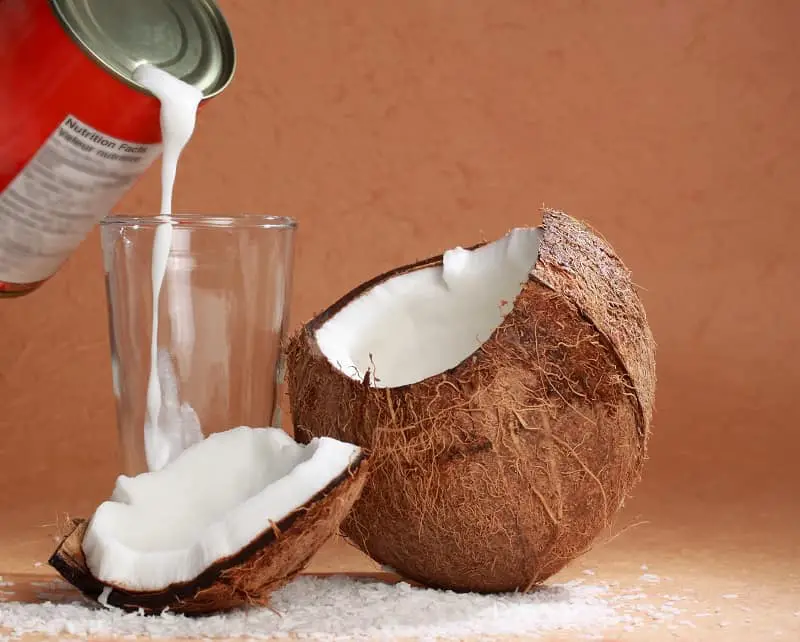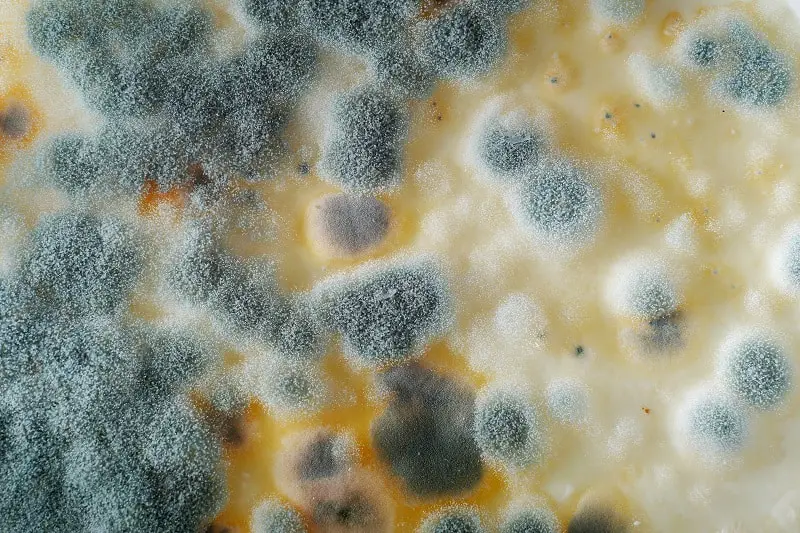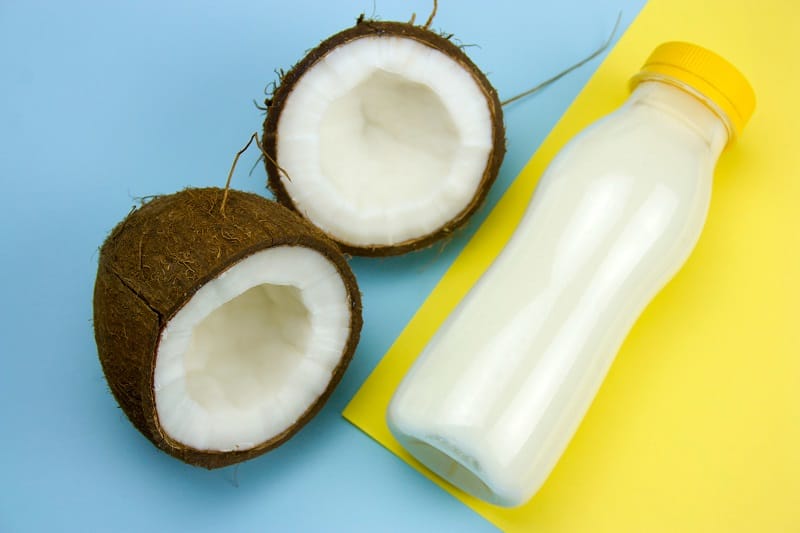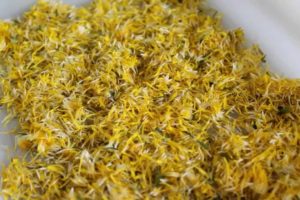Coconut milk is an especially diverse ingredient for your cooking and baking needs. For those who avoid dairy products, ideal dairy milk alternative.
It may be non-dairy, but that does not mean it is significantly less perishable than its dairy counterpart. Canned coconut milk, like many other foods, can sit for a very long time in your pantry.
There are recipes that do not call for the entire can or carton so the rest must be kept in the refrigerator until the next time you need it. But how long will it last?
A sealed container of coconut milk has a longer shelf life than cow’s milk. However, it is shortened considerably once it is unsealed. So it needs to be stored properly to retain its freshness for as long as possible.
We are going to talk about the process of making coconut milk. What are the signs that coconut milk is spoiled?
What are the best ways to store coconut milk – sealed and opened – to maximize its freshness and usability and how long it lasts under all storage conditions.
Does Coconut Milk Go Bad?

The short answer is yes, it does. Coconut milk is no different to its non-dairy counterparts.
The important question is how long can coconut milk last. The answer depends on whether the carton is sealed or open and whether it is kept in the fridge, freezer, or at room temperature.
Canned Coconut Milk
The shelf life of unopened canned coconut milk when properly stored is approximately between two to five years, as long as the sealed can does not have any punctures or bulges. If it does, then it has been compromised and must be discarded immediately.
Aseptic Carton
Coconut milk, sealed in aseptic packagings, such as an unrefrigerated carton, has a shelf life of between six and twelve months.
Once it is open and is properly stored, it will be good for up to a month after the printed expiration date.
The refrigerated coconut milk that is not in aseptic packaging should be used up within a week of the expiration date.
Once any sealed coconut milk has been opened, the spoilage process begins.
Thicker coconut milk kept in the fridge will stay good for a week to ten days. Thinner milk will last for about a week.
Always check for freshness prior to use.
How Can You Tell If Coconut Milk Has Gone Bad?

There are many obvious visual signs that will help you tell if coconut milk has gone bad and that it is time to throw away any unused coconut milk.
One is mold that will appear as a film on the surface.
Discard coconut milk if you see chunks. Do not confuse chunks with when the fat solids of thicker coconut milk separate and float to the top while the liquid remains below.
The first scenario is definitely a sign of spoilage, while the latter is safe to eat.
If the color turns darker or it curdles don’t risk consuming it. Rancid or sour-smelling coconut milk means it is time to get rid of it and buy fresh.
Check the container for bulges or swelling. If you find this sign, then discard it immediately.
How To Store Unopened Coconut Milk

Coconut milk is commonly stored in shelf-stable containers. Thicker, high-fat coconut milk is typically in cans.
Regardless of the container, always store it in your kitchen in a cool and dark place that is away from heat and humidity.
Freezing an unopened can or carton of coconut milk is not recommended because the freezing process will not extend its shelf life in any significant way.
Nowadays, you will also find coconut milk in the refrigerated section of the local grocery store. This version must continue to be kept in your fridge when you bring it home.
Coconut milk powder is also available. This will last a long time as long as it is sealed properly to keep dry.
How To Store Coconut Milk After It’s Been Opened
As soon as you open the carton or can of coconut milk, be certain any leftover coconut milk is stored in an airtight food storage container that is always kept in the refrigerator.
Freezing Coconut Milk
Unlike with an unopened container of coconut milk, properly freezing any opened coconut milk in an airtight container will extend its shelf life up to six months.
When needed, the coconut milk thaws overnight while in the fridge.
A great way to freeze coconut milk is in ice cube trays. Once solid they can be moved from the ice cube trays to a freezer bag.
The small portions of coconut milk are great popped straight in smoothies and in recipes when only a little coconut milk is needed.
Coconut Milk Storing Summary
Remember that a few factors are involved to maximize the freshness of your coconut milk. Always use the “best by” date to determine the length of your storage.
Storage conditions
Unopened Coconut Milk
- Canned coconut milk at room temperature lasts 2-5 years.
- Other containers at room temperature last 6-12 months.
- Refrigeration is the preferred way to store.
- Freezing does not extend shelf life.
Opened Coconut Milk
- Always store coconut milk in airtight containers once opened.
- Continuous refrigeration will allow it to last 6-7 days after the expiration date.
- Freezer extends shelf life to at least 3 months. If the temperature is a constant 0 degrees, the milk could last indefinitely.
- Coconut milk that is sold in the refrigerator section of the store must always be refrigerated. Its shelf life is 7 days after it is opened.
General Coconut Milk Advice
- Always store in a cool and dark environment. Keep away from heat and humidity.
- When freezing coconut milk leave at least ½” of room at the top of the container. Coconut milk expands when it freezes.
- Frozen coconut milk can be thawed overnight in the refrigerator. Coconut milk fats separate when cold or frozen, so shake well to restore its original consistency.

Signs Coconut Milk Has Gone Bad
Discard immediately if you find:
- Mold
- Chunks
- Curdles
- Discoloring
- Rancid or sour-smelling
- The containers or cans, have rust, bulges, leaks, swelling or are severely dented
- Coconut milk fats typically separate when refrigerated or frozen. This is not an indication of spoilage.
- Expiration dates are not indicators of when they will spoil. This is the manufacturer’s estimate of the timeframe of the product’s peak quality.






